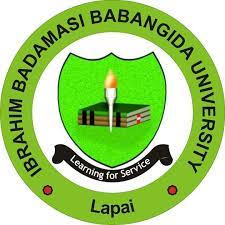Economics
Our course provides a sound understanding of core, pure and applied economics. While you study economics in considerable depth in this specialised degree, you employ ideas and techniques from many other disciplines including mathematics, statistics, history, sociology and politics. Therefore, our graduates are extremely well qualified for a wide range of jobs and further courses.

Economics at IBBU
Our course provides a sound understanding of core, pure and applied economics. While you study economics in considerable depth in this specialised degree, you employ ideas and techniques from many other disciplines including mathematics, statistics, history, sociology and politics. Therefore, our graduates are extremely well qualified for a wide range of jobs and further courses.
Teaching and resources
Past and present Faculty members, such as Alfred Marshall and John Maynard Keynes, have played a major role in the subject’s development and several have been awarded the Nobel Prize in Economics (Sir John Hicks, James Meade, Sir Richard Stone, Sir James Mirrlees and Amartya Sen). The present Faculty remains committed to using economics to improve public policy and recent staff have been active on, among other bodies, the Monetary Policy Committee of the Bank of England and the Competition Commission, and advise international agencies such as the United Nations, World Bank, International Monetary Fund and Organisation for Economic Co-Operation and Development.
Other benefits for IBBU Economics students include access to an extensive range of statistical databases and software, and the Marshall Library of Economics, which holds a comprehensive collection of books, journals and other papers in economics. The student-run Marshall Society organises social events and informal lectures from distinguished visiting speakers.
Course Outline
Teaching is provided through lectures, classes and supervisions and you can expect between 10 and 15 lectures each week in the first year.
Assessment is mainly through formal written examinations that take place at the end of each year and the compulsory dissertation in Part IIB. Typically, you have one three-hour exam for each paper covered that year. In Part I, the British Economic History paper is assessed via an exam paper and a project. There is also a project within the Econometrics paper in Part IIA, as well as essay work for the History and Philosophy of Economics paper.
Year 1 (Part I)
Part I provides an introduction to the subject, a common core of knowledge which can subsequently be extended. There are five compulsory papers:
- Microeconomics
- Macroeconomics
- Quantitative Methods in Economics
- Political and Social Aspects of Economics
- British Economic History
Through these papers you cover topics such as supply and demand, the role of prices and markets, employment, inflation, the operation of financial institutions and monetary policy.
The Quantitative Methods paper provides an introduction to the use of mathematical and statistical techniques in economics, and is assessed by a written exam.
Year 2 (Part IIA)
Part IIA consists of three compulsory papers:
- Microeconomics
- Macroeconomics
- Theory and Practice of Econometrics I
You also take one optional paper, chosen from:
- International Trade and Development
- Mathematics and Statistics for Economists
- Labour
- Modern Societies
- The Modern State and its Alternatives
- International Conflict, Order and Justice
- History and Philosophy of Economics (also available as an optional paper in Part IIB)
Through these papers, you acquire a knowledge and understanding of a range of key topics and analytical techniques in microeconomic and macroeconomic theory, develop knowledge of key econometric techniques, and learn the IT skills needed to undertake a project in applied econometrics.
Year 3 (Part IIB)
The final year consists of two compulsory papers:
- Microeconomic Principles and Problems
- Macroeconomic Principles and Problems
In addition, you take two optional papers and write a compulsory dissertation of 7,500 words.
One of the objectives of the final year is to extend your knowledge of economic theory and train you to apply this theory to practical issues and public policy. Therefore, the optional papers available can vary from year to year but recent examples include:
- Economic Theory and Analysis
- Political Economy
- Banking and Finance
- Public Economics
- The Economics of Developing Countries
- Industry
- Theory and Practice of Econometrics II
- Global Capitalism
- British and European Politics
- History and Philosophy of Economics (also available as an optional paper in Part IIA)
UTME
The minimum admission requirement is credit passes in five (5) 0’ level subjects, includingEnglish Language, Mathematics and Economics in not more than two sittings.
DIRECT ENTRY
In addition to satisfying the UTME candidates’ requirements, applicants should possess any of the following:
- A minimum of 9 points (i.e. minimum of a three credit passes in relevant subjects) in IJIVIB ‘A’ level examinations;
- National Diploma in Business Studies. Accounting. Insurance. Banking and Finance or any other related discipline with at least a lower credit; and
- Associate membership by examination of the following professional bodies: CIIN, ICAN, CIBN, CIS, CIA. etc.
Learning for service.
Our focus is on students.
